 |
 ความคิดเห็นที่ 48
ความคิดเห็นที่ 48 |

Maria Sharapova
Thursday, September 3, 2009
THE MODERATOR: Questions, please.
Q. Your thoughts on the match, the way you're playing right now?
MARIA SHARAPOVA: I thought I, you know, did a good job of starting off really good, especially not knowing her game, really how she played. I haven't seen much of her, if at all. So against those types of opponents, it's just really important to try to figure it out as fast as you can.
Once I did, I thought I did the right things. I thought I moved a little bit better than the other day and got good court coverage.
Q. Your thoughts on playing Melanie, the upcoming match?
MARIA SHARAPOVA: Yeah, I saw some of the match. I saw the way Elena played. I thought she could have done a few things better. Certainly, when Melanie had to step it up, she certainly did. In the times when she could have made errors, she came up with some really good shots. I mean, I've got a tough round ahead of me. Also somebody that I've never played against before, someone that's going to come out, and I'm sure she's gonna swing and have nothing to lose, which she doesn't.
But I'm looking forward to that.
Q. Usually when you play in big matches, you're everybody's favorite. Tonight was one example, and maybe the next match will be another example where you're playing an American, a kid.
MARIA SHARAPOVA: I think that's totally understandable. We're in New York City. I'm a Russian playing against a young, up and coming girl that has a tremendous amount of potential.
I think it would be strange if they weren't rooting for her.
Q. Does it enter your mind that it would be really good to try to get this thing over quickly so the fans don't have something to get excited about?
MARIA SHARAPOVA: I mean, to be honest, when I'm on the court, I try to I don't focus on I know there are many people watching the match, but I have enough experience to know my surroundings and know where I'm playing. I don't concentrate on the fact that someone is rooting, you know, against you or with you.
You obviously feel the energy of the crowd. I think numerous times that's helped me get through tough matches. But at the end of the day, it's about being within yourself, really focusing on, you know, what you have to do.
I mean, if you think about, Oh, you know, I got to finish this really fast so the crowd doesn't get into it, I mean, I think you're going to be screwed really fast, so...
Q. Christina was saying playing against you made her learn how far she has to go to become a champion. Were you ever in that position?
MARIA SHARAPOVA: Yeah, I played Monica Seles in Palm Springs many years ago. First two games I thought the played the best tennis in my life. I think I only won one of those and didn't win a game after that. I came off the court. I remember telling my parents, I thought I played so well and the score line is just horrible. Where do I go from here (laughter)?
You just keep working. I was fortunate to get to play her. I thought that experience really helped me because I realized I had a lot of work to do, yeah.
Q. I know it's nice to win easily, but do you relish the thought of playing a player who competes very well and fights?
MARIA SHARAPOVA: Yeah. You mean in my next round?
Q. Is it more fun to know going in this is not somebody that is going to quit in the game?
MARIA SHARAPOVA: I have to treat every opponent as someone that's going to go out there and compete. A lot of it is that in the sport. If you're not a big competitor, I've always said this game on most occasions is more mental, how strong you are mentally out there than physical. It's all about competing and fighting and knowing that no matter what the score line is, it's not over until, you know, you're shaking hands.
Q. Do you think athletes are born that way or do you learn that?
MARIA SHARAPOVA: That's a tough one. I don't know. I mean, I certainly think life experiences contribute to it certainly. I mean, if you're young and you're always used to getting things and everything is brought to you on a golden plate, then going on when you're older, you probably feel like all things are going to be brought to you, and you sometimes forget that you have to work for things.
I mean, my parents set a really good example as a child that you have to work for every single thing that you have in your life. That's what I really admired in my parents, is that they always taught me it's so hard to earn something and gain something. We're not just talking about money. I mean, in life in general. And it's so easy for it to go away and to lose it.
Q. Obviously you were a very different kind of 17 year old player. You were at a different level than she is now. If you don't have that fighting spirit by 17, is it all over? Can you learn it after that?
MARIA SHARAPOVA: I don't think so. I mean, I think a lot of it also has to do with belief. If you learn from your past experiences or if you felt like you were a little soft in certain matches, you know, maybe in the next opportunity you get against I don't know a top player, a match you should have won, then you try to change that, and you try to change your attitude.
I think it's almost always disappointing to see players get down on themselves. I mean, I've had my moments in my career, as well. And sometimes when you're in the moment, you want to let your emotions go. But I think it's just such a strong aspect in somebody's game and life when they're just tough.
Q. I know you have strong connection to the States, but you're a Russian. Is it good to see an American woman player coming up?
MARIA SHARAPOVA: Absolutely. I think it's funny. Every Grand Slam you go to, you know, when you're in London, How is the LTA doing? When you're in America, How is the USTA doing? I mean, you certainly see a great amount of talent coming up. I think it's great. Not only do you have that; you also have Venus and Serena who are 2 or 3 in the world. I think they're doing pretty good.
| จากคุณ |
:
Los Merengues  
|
| เขียนเมื่อ |
:
5 ก.ย. 52 10:47:34
|
|
|
|
 |
 )
) 


 สมาชิกทั้งหมด 46 คน
สมาชิกทั้งหมด 46 คน 
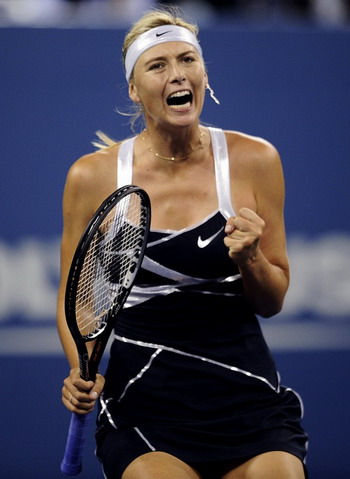

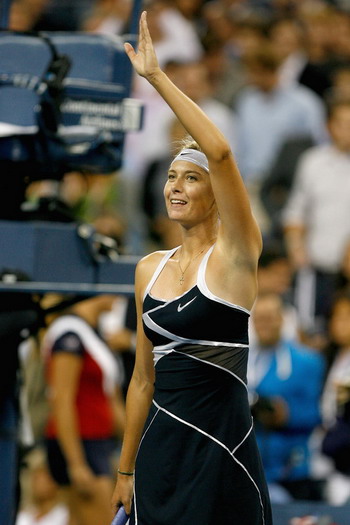

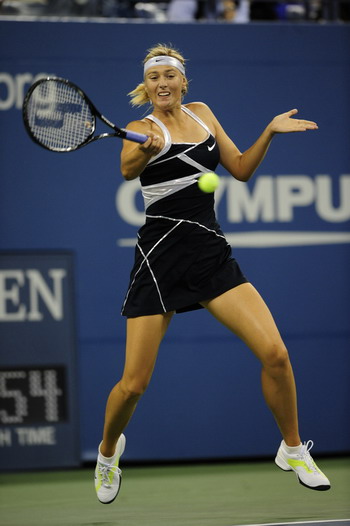


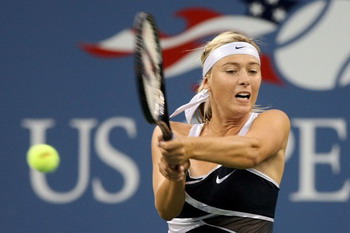
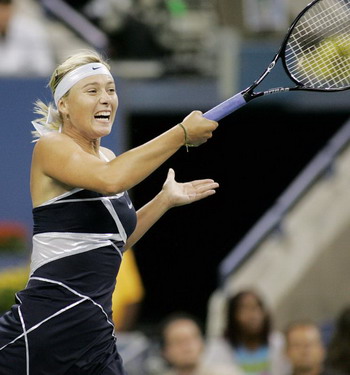
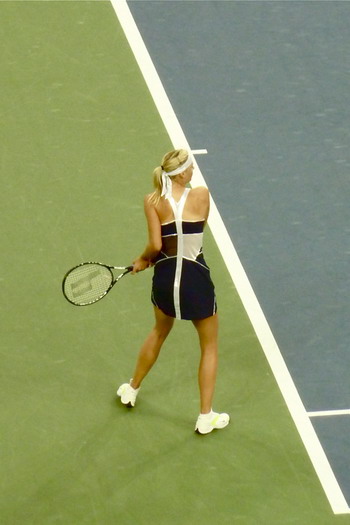
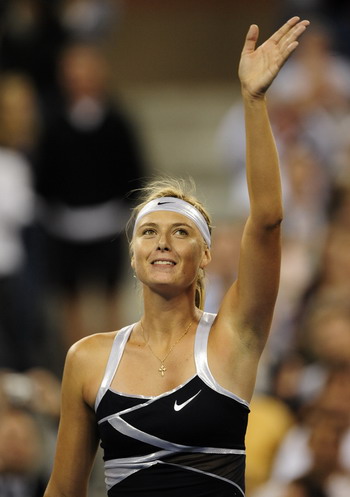
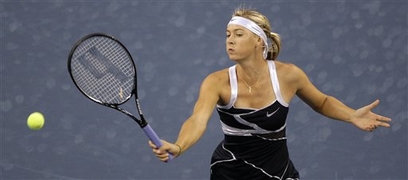

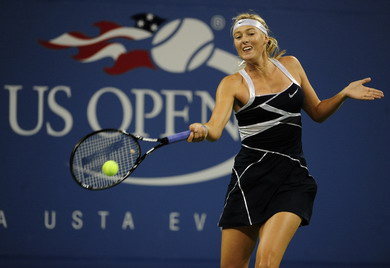
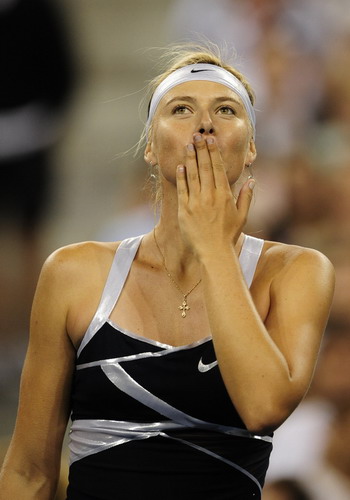


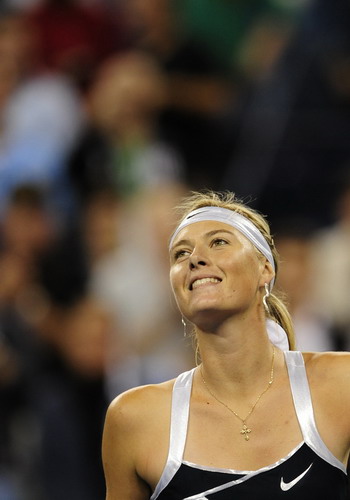

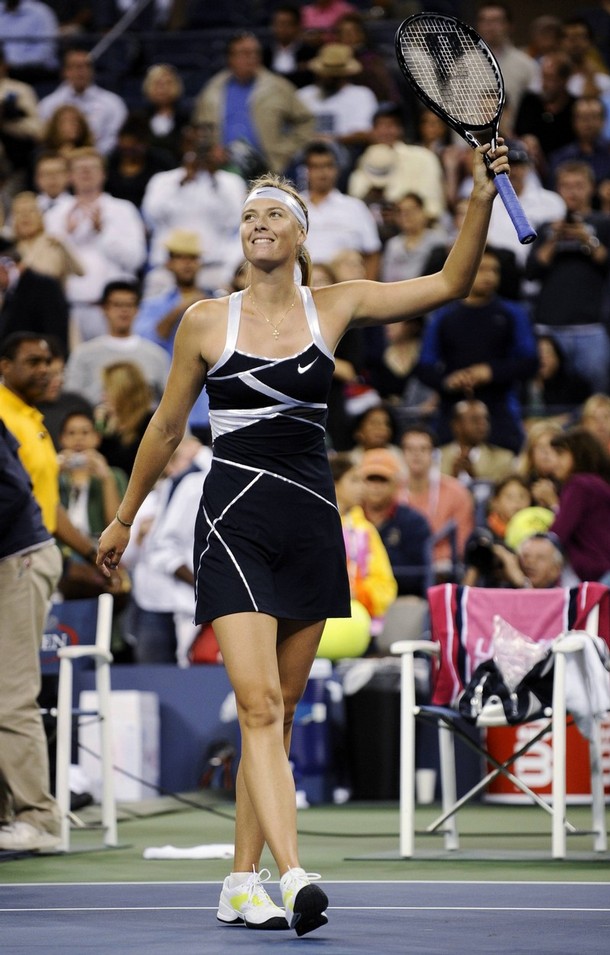






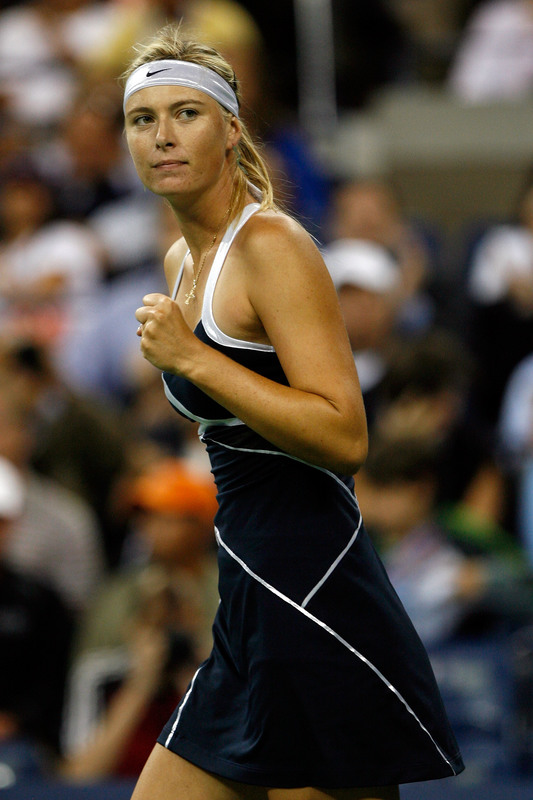



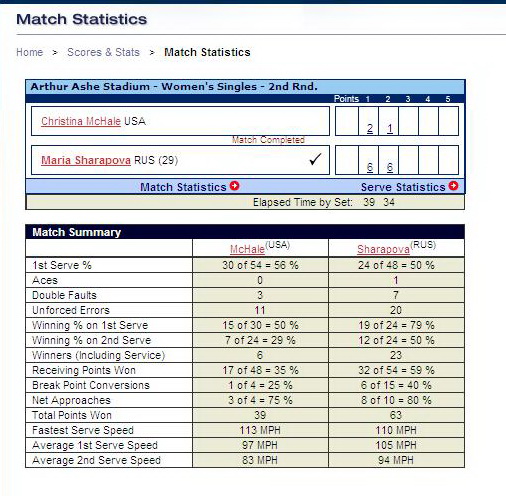
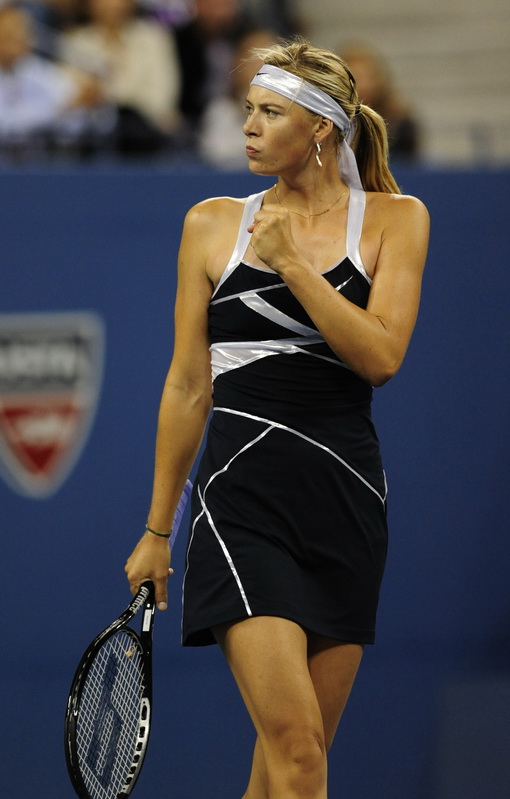



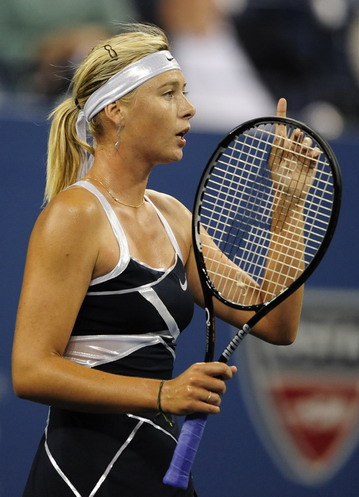

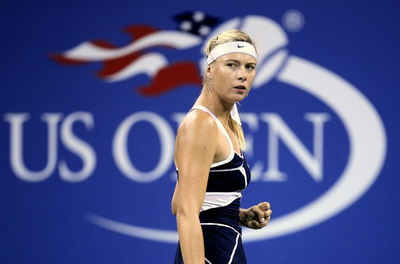




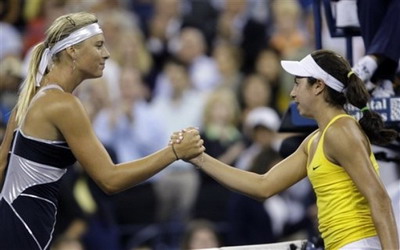
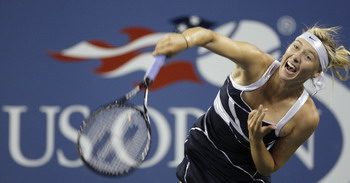
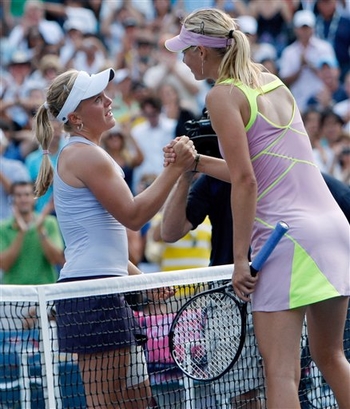

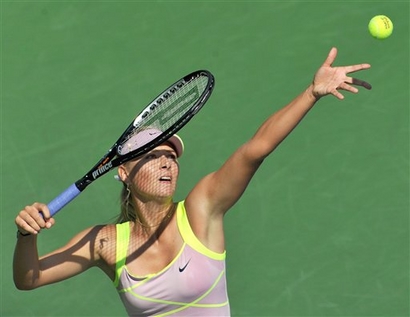
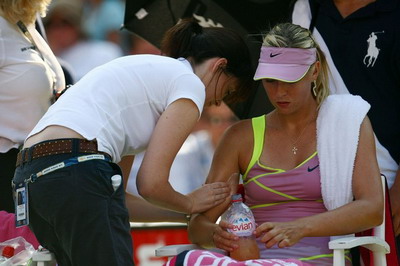
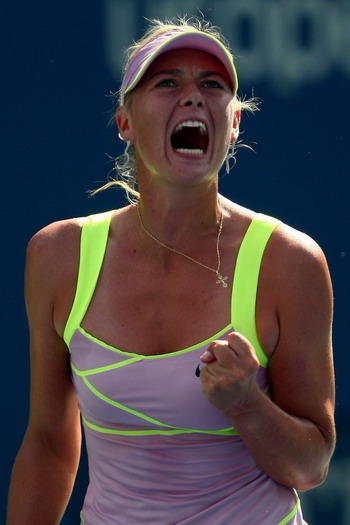

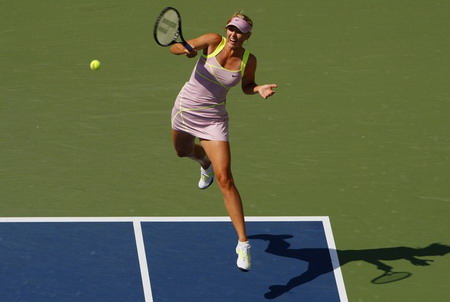
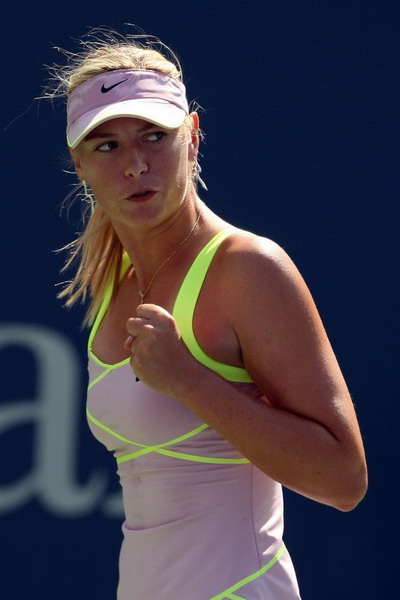
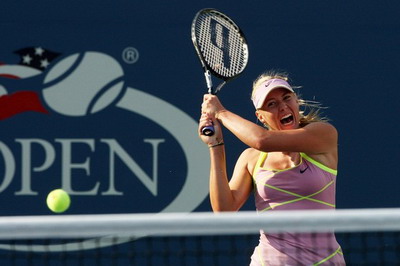
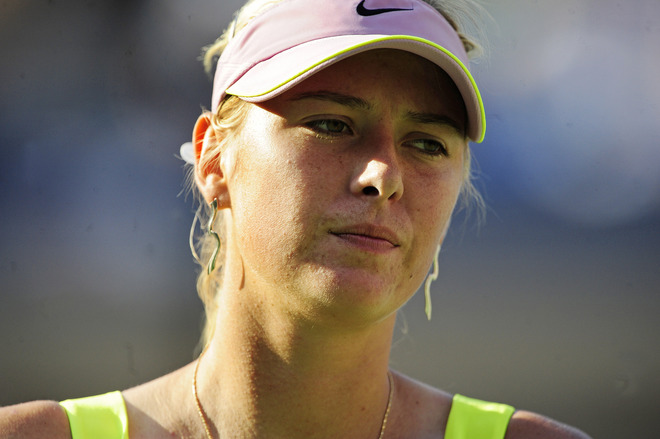


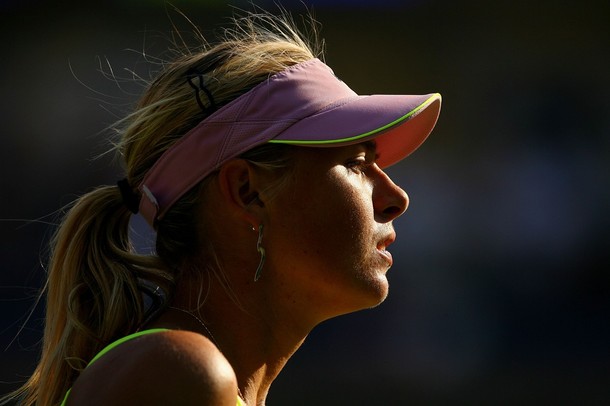

 )
)